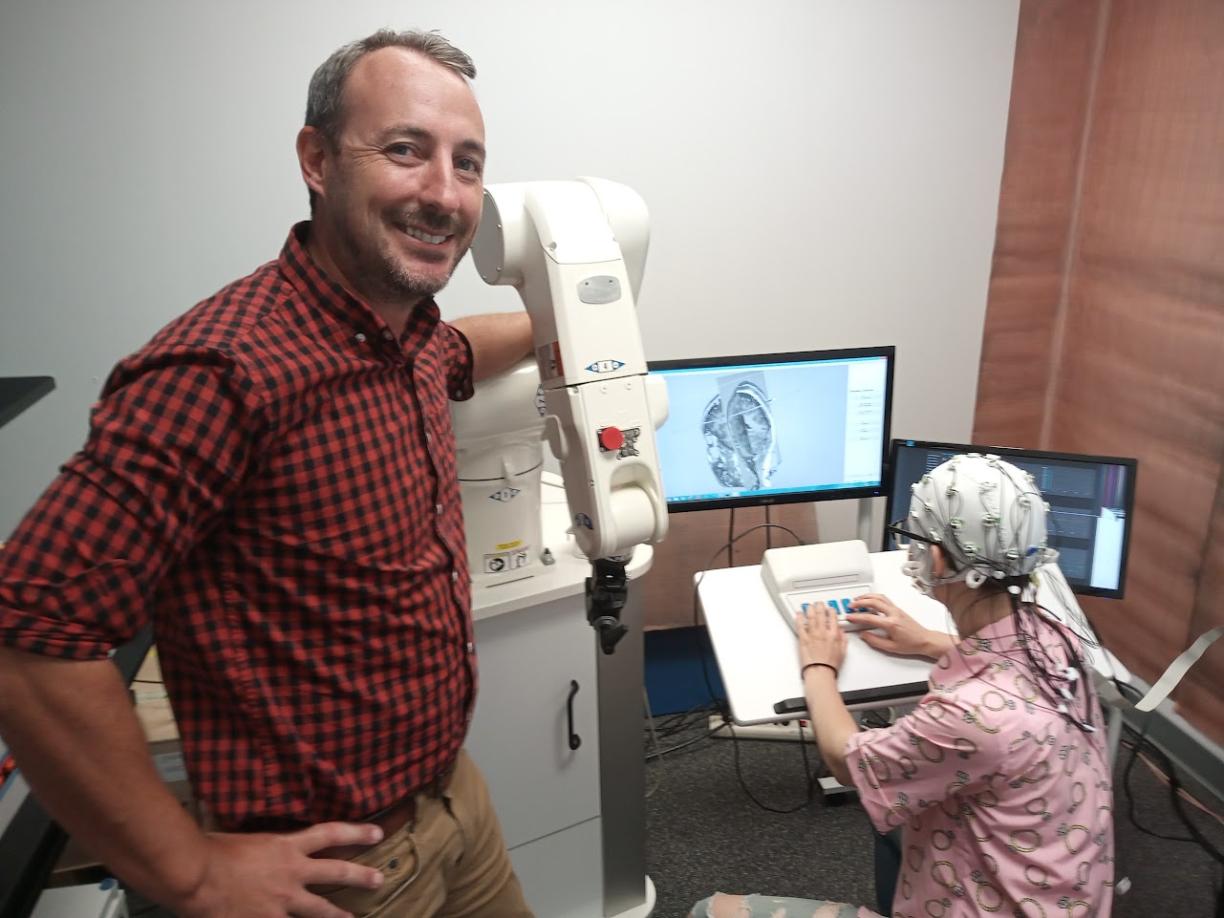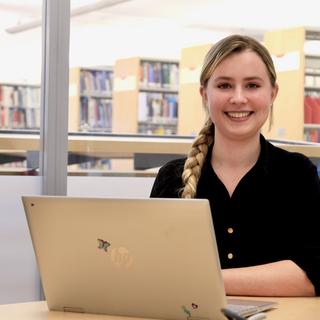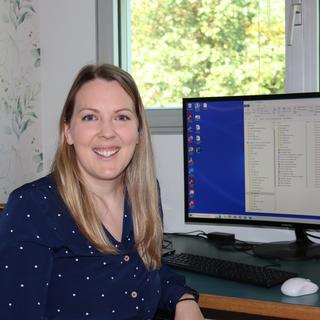VIU Psychology alum Dr. Travis Baker receives $2.5-million grant for research
Little did Dr. Travis Baker know when he first came to Vancouver Island University more than 20 years ago that it would be the start of a successful career in researching new treatments for addiction. Now an Assistant Professor at Rutgers University-Newark’s Centre for Molecular and Behavioral Neuroscience, he recently received a $2.5-million grant from the National Institute on Drug Abuse to continue his research.
“I will be developing the next generation of brain-based therapies for substance use disorders,” he says. “If it wasn’t for the great mentorship I received from VIU, and the excellent learning experience from the program, I have no idea where I would be today.”
Read on to learn more about Baker’s ground-breaking research, and how VIU inspired his current career in neuroscience.
Why did you choose VIU?
In 1997 I was permanently laid off from a job in the forestry industry in Port Alberni due to the poor economy at the time and then moved to Alberta to work in the oil fields like many of my peers. I knew I eventually wanted to return to the Island to pursue academia. During my time in Alberta, I worked with a career counsellor from Port Alberni (as part of a retraining program offered by the forestry industry), and he helped me find a path to university based on my interests. We both agreed that the Psychology program at VIU was the perfect fit for me, given that it had such a good reputation and covered many topics I wanted to study.
Can you share a highlight or two from your time here?
I really did not know what to expect when I arrived on campus, as I was the first from my family to go to university. But what I immediately found after a few classes was that the professors were amazing, classes were a nice size so it wasn’t too overwhelming for me, and the professors were very approachable outside of class. They were eager to chat and help you excel in your program. The learning experience was awesome, and I found a great cohort of students to work with – another benefit of the small class sizes. Meeting people who were like-minded and shared similar interests made the whole experience fun.
Was there a particular professor or class who had a major impact on you?
There were two professors who really helped guide me to where I am today. The late Dr. Tony Robertson first introduced me to neuropsychology and cognitive neuroscience. He was such a pleasant individual and so interesting to learn from. Tony provided me with a clear window into the brain and its functions and encouraged me to learn more from him outside of class. He introduced me to human electrophysiology and taught me to record my first brainwave (or electroencephalography), a technique that is the major focus of my research today, and at the heart of my recent research grant. I am forever grateful for his mentorship, and we kept in touch over the years until his passing. After learning of his passing, I dedicated my recent Nature: Scientific Reports publication to him. This study is one of the first of its kind to combine mobile-EEG and virtual reality to record EEG from people actively walking in a virtual maze to find rewards.
I am also forever grateful to Dr. Elliot Marchant. Without his mentorship, I would never have pursued a career researching drug addiction. He was hired when I was in my second year and he taught courses on neuroscience, drugs and behaviour, and also gave me the opportunity to do actual research. He recognized my passion for research, and I will never forget the day he approached me and asked if I had ever thought about pursuing research in graduate school. My initial response was: “What is graduate school?” He worked with me to actively pursue graduate school. This was all done outside of class, and he was so passionate in seeing me succeed. Without his mentorship in both research and career development, I would not be where I am today.
What have you been up to since graduating from VIU?
After VIU, I completed a Master of Science in Experimental Psychology and a PhD in Cognitive Science at the University of Victoria. I did a post-doc with the University of Montreal’s Department of Psychiatry and at the Montreal Neurological Institute at McGill University (Department of Neurology and Neurosurgery, specializing in neuroimaging). Both my PhD and post-doc were supported by a Canadian Institute of Health Research grant, which I am so grateful to have received. After four years of being a post-doc, I was offered an excellent opportunity from Rutgers University in Newark, NJ, where I am today. I am now an Assistant Professor and Principal Investigator of my own lab (Laboratory of Cognitive Neuroimaging and Stimulation). If it wasn’t for the great mentorship I received from VIU, and the excellent learning experience, I have no idea where I would be today.
Tell us about your research and what you hope to accomplish.
With the support of the National Institute on Drug Abuse grant, I am using a cutting-edge, robot-assisted brain-imaging technology called transcranial magnetic stimulation (Ri-TMS) to alter the brain’s response to the use of substances. This could correct processes in the brain that sustain substance-use disorders.
When people make a good choice and get rewarded, the neurotransmitter dopamine is released to help motivate and select that choice in the future. However, drugs of abuse can artificially release large amounts of dopamine, and in turn, can effectively increase the motivational value of drug-related choices. Addiction can thus be thought of as a fundamental problem of reward learning and motivation, such that drugs of abuse can create a motivational reward bias towards choices that lead to substance use while decreasing the motivation for other activities such as going to work or maintaining healthy relationships. We can measure this reward bias in individuals with a substance use disorder by recording a brainwave called the reward positivity.I hope to then use Ri-TMS to flip the brain’s response to substance use and reverse that bias, as measured by the reward positivity.
The overarching goal of this research is to reduce the frequency and severity of neurocognitive deficits among individuals with substance use disorder, and I anticipate that counteracting this reward bias may not only improve goal-directed processes, but may increase substance users’ success in treatment, and maintaining treatment goals.
What advice would you share with VIU students considering a career in research?
You are in a very nurturing learning environment. Be passionate about your studies and find ways to excel in your research direction within and outside of VIU while you are pursuing your degree. Look at the long-term goals of your studies, and always plan ahead with the advice from your mentors, they are there to guide you. VIU provided me with the foundation to achieve excellence in research and academia, so be confident in your studies and degree, and know that there will be more in store for you in the future. There will always be successes and failures in your endeavours, but trust that the foundations you are receiving at VIU will guide you through all of them.





